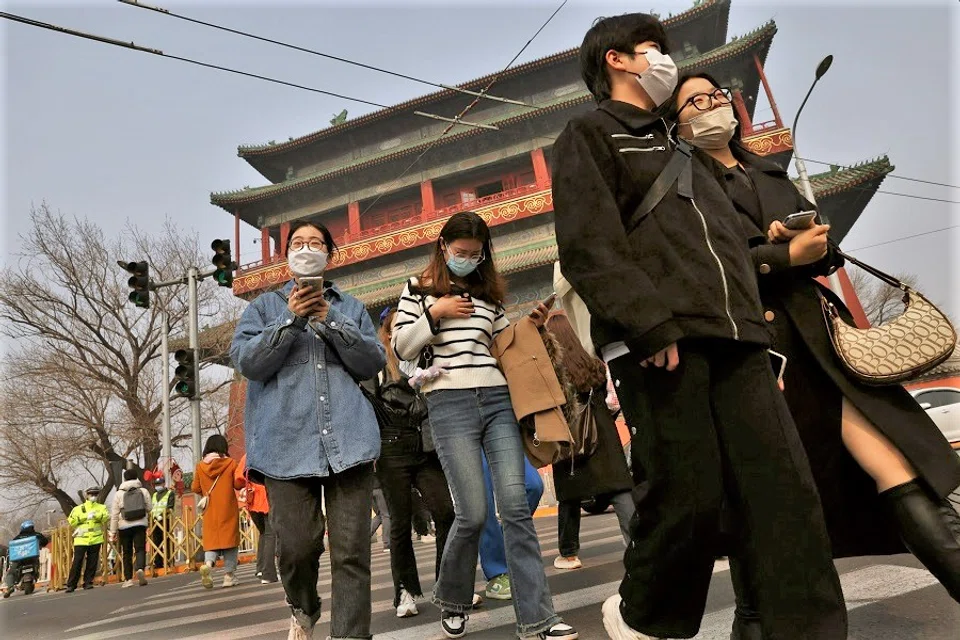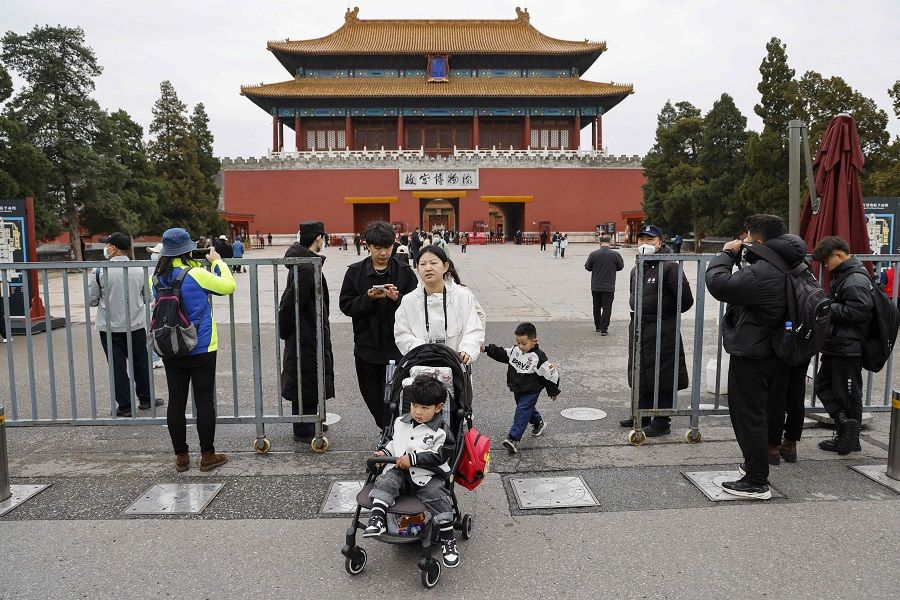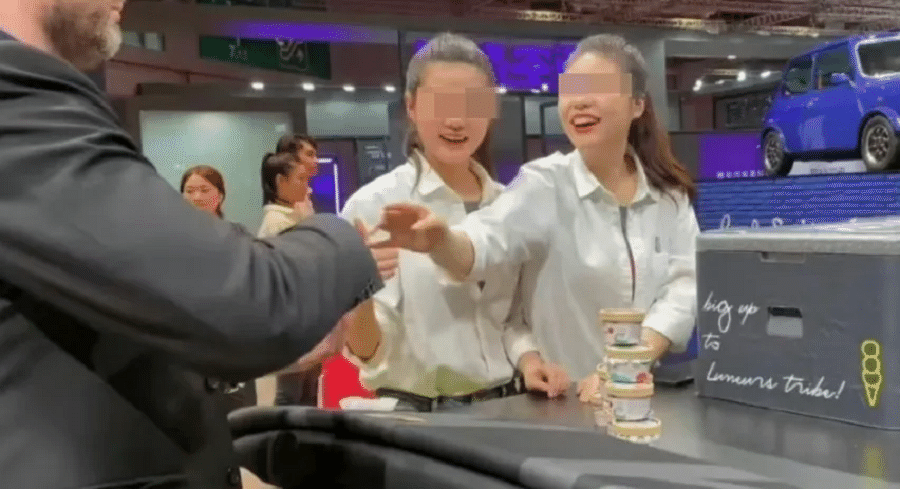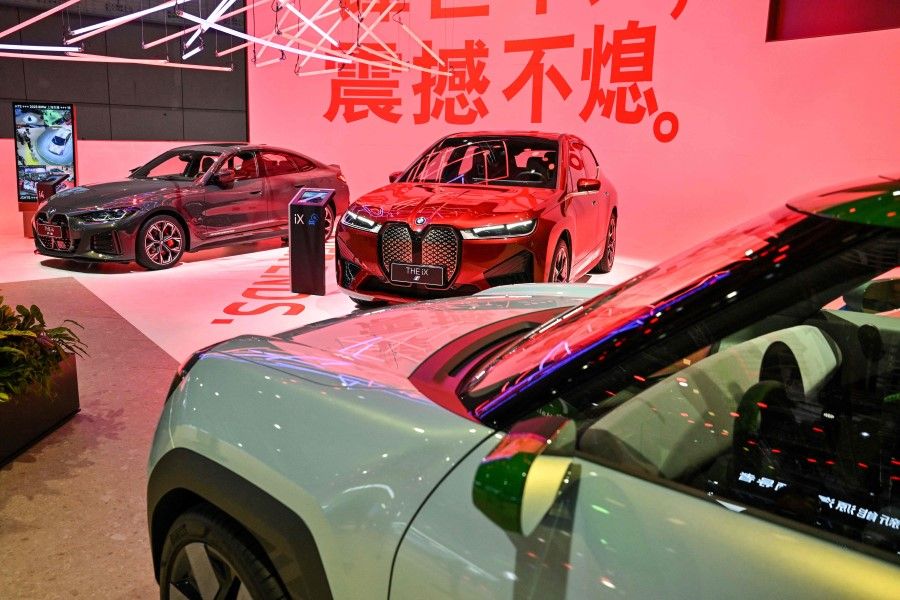Chinese commentator: China's nationalistic frenzy stems from an inferiority complex

Recently, a nationalist wave spread across China when free ice-cream was allegedly given to a foreigner but not a Chinese person at the Shanghai Auto Show. How incredulous! Although BMW Mini issued an apology after the incident, acknowledging that the "careless management and staff negligence caused unpleasantness for everyone", the nationalistic Chinese continued on their rampage. They started smashing BMW Mini cars, just like they did Japanese cars in an earlier anti-Japanese tirade. A solar company (丰投光能公司) in Suzhou even got its BMW-driving employees to switch to China-made vehicles within the month, dangling a cash reward of 20,000 RMB (roughly US$2,900) and threatening to dismiss those who did not comply.
These irrational Chinese are not patriotic - they are simply destroying the country.
Harmful nationalistic Chinese
Even as Chinese netizens lambasted BMW Mini for insulting China, they didn't forget to mock the explosion of Elon Musk's SpaceX rocket. These haters fail to realise that Musk's failures are the mother of his success - didn't China's rocket launches also fail before? Such displays of highly irrational and ugly nationalist sentiments only damage the country's international image and business environment. These irrational Chinese are not patriotic - they are simply destroying the country.

This is just like the earlier case of Chinese netizens accusing foreign investors of exploiting the Chinese, but now that foreign companies are leaving China one by one and young people are left with few job opportunities, these attackers have finally stopped. The reality shows that when foreign investors leave China, China's job opportunities lessen by the day.
Why did a cup of ice cream stir up such a huge controversy in China? The nub of the issue is the Chinese people's "century of humiliation" complex that refuses to go away. The historical narrative of mainland China is marked by two characteristics: one, China's 5,000-year-old civilisation, understood as one that has developed uninterrupted up to the present day; and two, modern Chinese history represented by the "century of humiliation".
The first characteristic is a mere exaggeration. Archaeological findings show that the history of Chinese civilisation is about 3,760 years old. (NB: The beginning of the Chinese civilisation continues to be debated depending on the definition of civilisation and the criteria that define a beginning.) Not only that, at one point, the Han Chinese-dominated regime had been destroyed by the Mongols and Manchus.

The second characteristic shows that Chinese people have failed to reflect deeply on the decline of authoritarian regimes one after another since the Qin dynasty. Notably, the Eight-Nation Alliance was led into Beijing by the Chinese people themselves, while Yuanmingyuan (the Old Summer Palace) could only have been burnt by British and French troops with the help of the Chinese people - hearing that the allied forces were having difficulties setting Yuanmingyuan on fire, they brought braziers and straw to help them. The people's only wish was to share the spoils of these escapades with the foreigners.
The political characteristic of Chinese nationalism is portraying Western countries as enemies, and cultivating seeds of hatred starting from childhood.
Pent-up hatred and a chip on the shoulder
Over 100 years later, something peculiar has happened: while previously the emperor's private property was burned and the common people under imperial rule followed suit by remorselessly looting and burning, today the Chinese people seethe with hatred of another kind.
The Qing emperor's personal humiliation has suddenly become the humiliation of the people and the nation, and this change came about because the situation in mainland China calls for uniting the people through nationalism; only by tapping on historical humiliation to get the people to feel the security provided by a strong government can the regime be consolidated and stabilised.

The political characteristic of Chinese nationalism is portraying Western countries as enemies, and cultivating seeds of hatred starting from childhood. Hence, Chinese-style patriotic education is necessarily linked to opposing the West.
Amid such a patriotic atmosphere, even two cups of ice cream can evoke the historical humiliation of "Chinese and dogs not allowed". This victim mentality is equivalent to having a "glass heart", behind which lies a lack of rational thinking - long-term nationalism has nurtured such hyper-sensitivity, leading to extremely ugly behaviour.
The Chinese people's inferiority complex is fundamentally due to their lack of confidence when dealing with Westerners.
A risk of instability
Ugly nationalism reflects the Chinese people's sense of inferiority and blind confidence. In a country that claims to be wealthy, whether or not one gets to eat ice cream should be of no consequence; but to the poor, the value of the ice cream has to do with their ego in whether they have been respected. The Chinese people's inferiority complex is fundamentally due to their lack of confidence when dealing with Westerners.

On the other hand, the Chinese people also show blind confidence. After the ice cream incident, CCTV aired a message claiming that BMW's stock had plummeted. Chinese netizens cheered, and the implicit message was that offending China will not end well. However, the truth was that German stocks had plummeted, and it had nothing to do with what happened in China.
China's ugly nationalist sentiment is rooted in a victim mentality of being unable to shake off a century of humiliation, as well as an extremely sensitive sense of inferiority, which sometimes also shows blind confidence. Living in a figurative well without understanding the outside world, accepting official propaganda, and lacking critical thinking and knowledge of history - all these are how extreme Chinese nationalism has been shaped. Nationalism is a double-edged sword, and in some cases, countries that manipulate nationalism can bring great instability upon themselves. This is why mainland China will not easily use force to reunify with Taiwan.
Related: Shanghai Auto Fair: Battle of the Chinese EV giants | Pelosi's Taiwan visit reveals the ugliness of Chinese nationalism | Chinese butting heads with Western media: Irrational nationalism or deeds of justice? | Pandemic nationalism rages among Chinese youths | Class struggle and extreme nationalism have become CCP's ideological weapons
